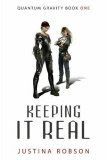The Latest Newsletter From David Louis Edelman
All,
I haven’t sent out an Infoquake newsletter in a little while, because — well, because there hasn’t been much newsworthy Infoquake stuff to report. So I thought I’d take an opportunity to talk about upcoming appearances.
- March 21: KGB Bar Fantastic Fiction Reading in New York, NY. I will be reading at Ellen Datlow and Gavin Grant’s celebrated KGB Fantastic Fiction Series on Wednesday, March 21 at 7 PM, along with Nebula and Philip K. Dick Award-winning author Carol Emshwiller. If you’re in the New York area, you probably know all about these readings. They tend to be very lively and well-attended, and then everyone hangs out at dinner afterwards. So come on down and bring your friends! (Can anybody recommend a good, cheap place nearby to stay?)
- April 20-22: Penguicon in Troy, MI. This promises to be quite an intriguing event: a convention devoted to both science fiction and open source software. I’m already on the hook for a reading and a signing, and will probably be signing up for more.
- May 5: Annapolis Book Festival in Annapolis, MD. I’m going to be appearing on a science fiction authors panel with (so far) Catherine Asaro.
- May 25-27: Balticon in Baltimore, MD.
- July 5-8: Readercon in Burlington, MA.
I’ll be bringing along stacks of promotional Infoquake CDs to all of these events, with sample chapters in a variety of formats and other goodies.
A couple pieces of Infoquake-related news since the last newsletter:
- Appearance on NPR Weekend Edition. Yes, I was on NPR’s Weekend Edition, interviewed by Rick Kleffel of the Agony Column. You can listen to the piece here.
- 20 Minute Audio Interview with the Dragon Page. The popular science fiction podcast Dragon Page Cover to Cover posted a 20-minute audio interview with me in January. Interviewer Evo Terra grilled me about how nanotechnology is changing our world, the real world/virtual world hybrid of the multi network, whether the book’s protagonist Natch is really just a power-hungry bastard, how the characters in Infoquake differ psychologically from 21st century people, and how Natch compares to modern-day entrepreneurs like Bill Gates and Steve Jobs. (The interview begins about 7 minutes 50 seconds in to the podcast.)
- Reviews from NY Review of SF, Libertarian Futurist Society. The New York Review of Science Fiction called Infoquake “a brisk, well-told science fiction adventure… where incident crowds onto incident, where jeopardy makes us hold our breath, and rabbits are pulled from the hat only at the very last moment.” Meanwhile, Prometheus, the newsletter of the Libertarian Futurist Society, praised the book as “a raw and fascinating novel, with a fast pace and and nifty economic themes.” Finally, SF blogger Christian Suavé said in his review: “Fluent in the languages of business and information technology, Infoquake is a ride through a fresh future, a strong debut from a promising writer, and a proud representative of Pyr’s early line-up.”
For those who continue to ask when MultiReal will be coming out… I’ve finished what I somewhat haphazardly labeled the Fourth Draft of the book and am on the line-edits-with-pen stage. I hope to have an announcement on a publication date sometime in the next couple months, but in the meantime you can read a preview of what’s in store on my blog. The book’s gonna rawk.
Coming up: the venerable Asimov’s magazine will be reviewing Infoquake in their 30th anniversary April/May issue. Let’s hope it’s a good one.
Towards Perfection,
David Louis Edelman
Author of INFOQUAKE
www.infoquake.net
www.davidlouisedelman.com
The Latest Newsletter From David Louis Edelman Read More »













